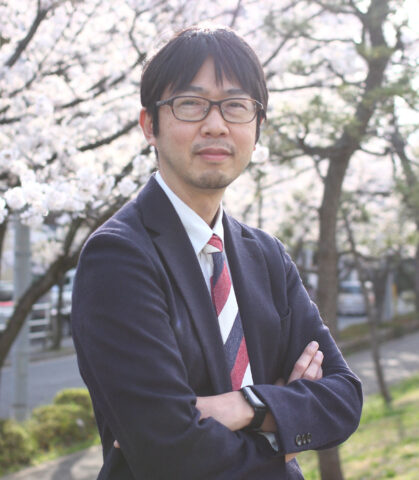Kentaro KAWASAKI, Associate Professor
・Cross-Appointed Faculty, International Program in Agricultural Development Studies (IPADS)
Laboratory of Economics, Department of Agricultural and Resource Economics,
Graduate School of Agricultural and Life Sciences, the University of Tokyo

Faculty’s website
https://researchmap.jp/Kentaro.KAWASAKI/?lang=en
Contact information:
>>EMAIL kawasaki-kentaro[at]g.ecc.u-tokyo.ac.jp
Professional Experience
| 2021.4~Present | Associate Professor, Department of Global Acricultural Sciences, The University of Tokyo |
|---|---|
| 2019.4~2021.3 | Senior Chief Researcher, Policy Research Institute, Ministry of Agriculture, Forestry and Fisheries (PRIMAFF) |
| 2015.8~2018.7 | Agricultural Policy Analyst, Trade and Agriculture Directorate, Organisation for Economic Co-operation and Development (OECD) |
| 2013.4~2019.3 | Chief Researcher, Policy Research Institute, Ministry of Agriculture, Forestry and Fisheries (PRIMAFF) |
| 2005.4~2013.3 | Researcher, Policy Research Institute, Ministry of Agriculture, Forestry and Fisheries (PRIMAFF) |
| <Visiting / Part-time Position> | |
| 2024-2025 | Principal Researcher, Department of Agriculture, Ministry of Agriculture and Livestock, Royal Government of Bhutan |
| 2013~2020 | Part-time Lecturer, Department of Agricultural and Resource Economics, The University of Tokyo |
| 2010.7~2012.6 | Visiting Scholar, Department of Agricultural and Resource Economics, The University of Maryland |
Education
| 2007 | Ph.D., Agricultural Economics, The University of Tokyo |
|---|---|
| 2003 | M.S., Agricultural Economics, The University of Tokyo |
| 2001 | B.A., Agricultural Economics, The University of Tokyo |
Research interests
Quantitative analysis (econometrics, machine learning, simulations, and experiments)
Study example
Our laboratory specializes in economic analysis using empirical methods. While most students are encouraged to use econometric techniques, depending on your research interests, you can also explore machine learning, experimental methods (e.g, choic experiments, RCT, or classroom experiments), or simulation methods (e.g., CGE models).
The scope of our research is broad. Past topics include climate change, organic farming, crop quality (grading), land fragmentation, and agricultural policy (e.g., decoupled payments, free trade agreements, and conservation auctions). Students are encouraged to choose research topics based on their own interests.
We do not have specific target countries or regions for research. You are free to study any country or region of your choice. However, the selection of a study area is often influenced by data availability. To make a strong start on your thesis, it is crucial to identify a suitable dataset as early as possible.
If you are passionate about agricultural economics, empirical methodology, and have a strong ambition to publish in top agricultural economics journals, please feel free to contact us.
Publications
Main works (See faculty’s website for the full list of publications)
- Kawasaki, Kentaro. (2023) “Impact of climate change on crop pests and diseases: Ensemble modeling of time-varying weather effects,” Journal of the Association of Environmental and Resource Economists, Volume 10, Number 6, pp.1515–1543. https://doi.org/10.1086/725323
- Kawasaki, Kentaro. (2019). “Two Harvests Are Better Than One: Double Cropping as a Strategy for Climate Change Adaptation,” American Journal of Agricultural Economics, Volume 101, Issue 1, Page 172–192.
- Kawasaki, Kentaro and Shinsuke Uchida. (2016). “Quality Matters More Than Quantity: Asymmetric Temperature Effects on Crop Yield and Quality Grade,” American Journal of Agricultural Economics, Volume 98, Issue 4, Page 1195–1209.
- Kawasaki, Kentaro and Erik Lichtenberg. (2014) “Econometric Analysis of Grading Standards: The Ordered Fractional Approach.” American Journal of Agricultural Economics, Volume 96, Issue 1, pp.345–365.
- Kawasaki, Kentaro, Takeshi Fujie, Kentaro Koito, Norikazu Inoue, Hiroki Sasaki. (2012) “Conservation Auctions and Compliance: Theory and Evidence from Laboratory Experiments.” Environmental and Resource Economics, Volume 52, Issue 2, pp.157–179.
- Kawasaki, K. (2010) “The costs and benefits of land fragmentation of rice farms in Japan.” Australian Journal of Agricultural and Resource Economics, Volume 54, Issue 4, pp. 509–526.